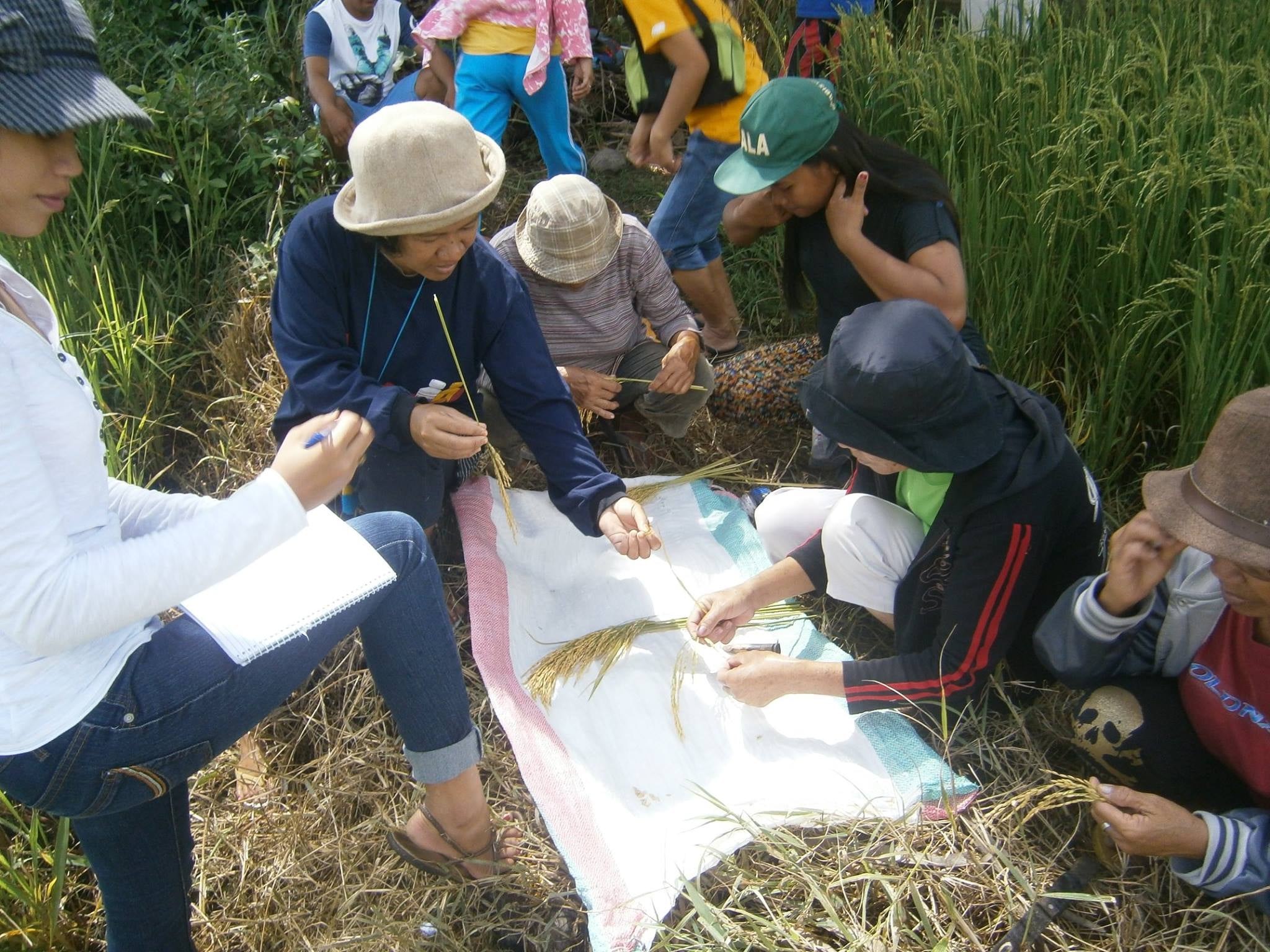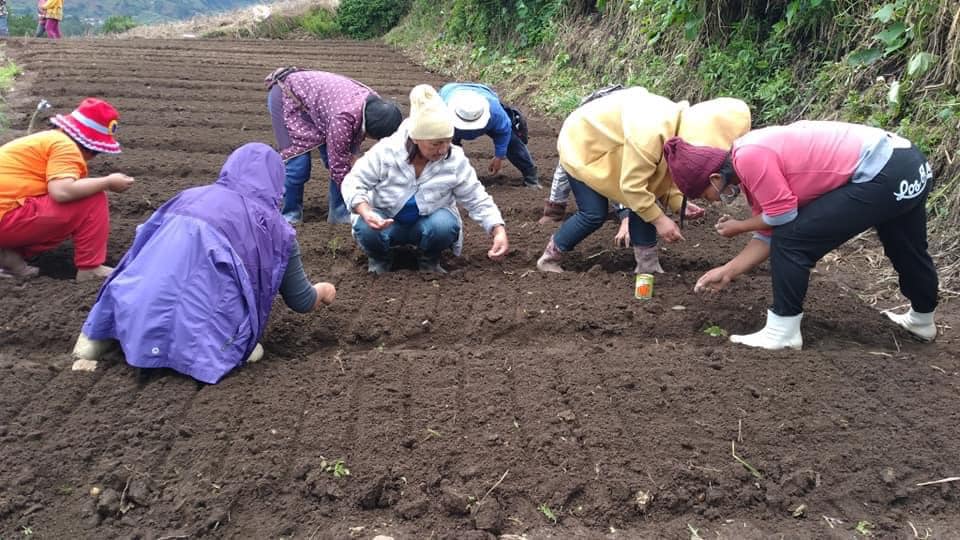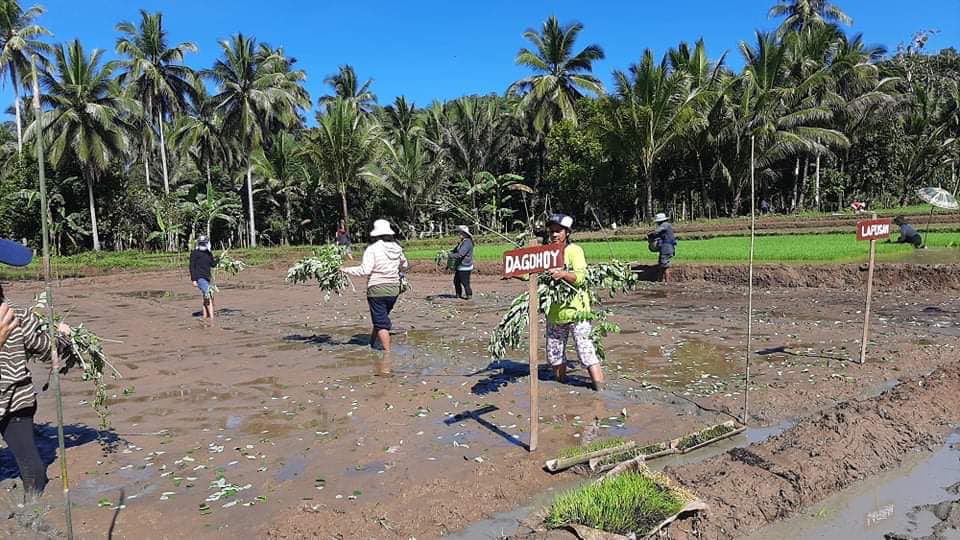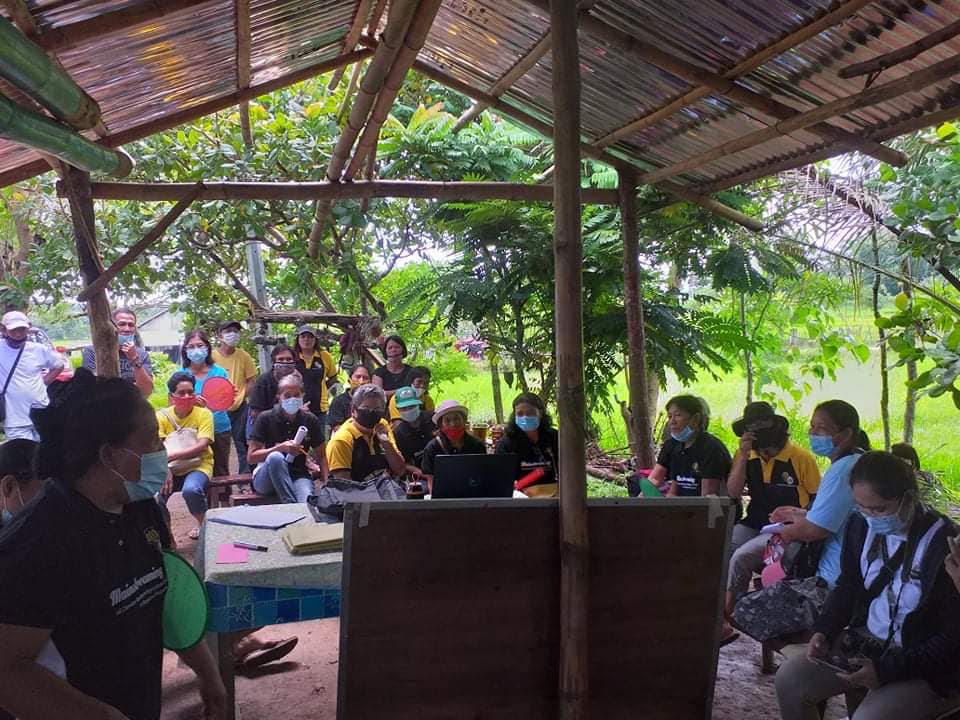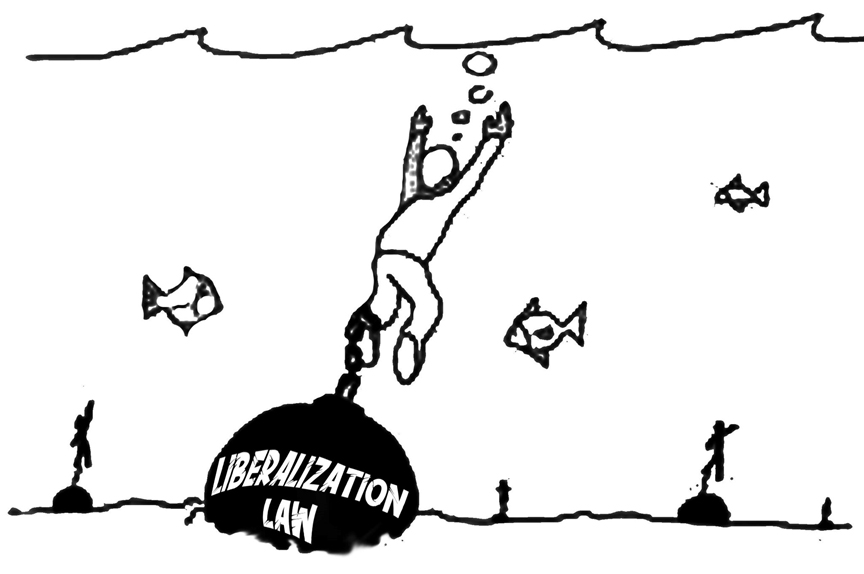Project
Farmers Advocacy Coalition and Campaign Build Up
-
Amount Funded
74,127 EUROProject Duration
16 Jan 2020 - 16 Jan 2021 -
-
Lead organisation
Rice Watch Action Network (R1)
-
The Rice Watch Action Network (R1) has always been updating itself on the situation of the rice industry and the impact on farmers by engaging farmers and government. It has consistently provided its services to farmers in more than 50 local government units, contributing to improving the resiliency of local agricultural system primarily in the field of providing innovative early warning and adaptation actions against the slow onset of climate change.
R1 has been actively participating and supporting issues that affect farmers, particularly rice farmers like the Rice Tarrification Law and the discussions and negotiations on protecting the rice industry involving Quantitative Restrictions that have now been lifted. R1 engages at all levels in favour of farmers and in support of their aspirations. With strong experience in community work, they have effectively linked farmers and local government units R1 serves with other institutions such as the Department of Agriculture and international donors.
-
Organisation
The Rice Watch Action Network (R1) has always been updating itself on the situation of the rice industry and the impact on farmers by engaging farmers and government. It has consistently provided its services to farmers in more than 50 local government units, contributing to improving the resiliency of local agricultural system primarily in the field of providing innovative early warning and adaptation actions against the slow onset of climate change.
R1 has been actively participating and supporting issues that affect farmers, particularly rice farmers like the Rice Tarrification Law and the discussions and negotiations on protecting the rice industry involving Quantitative Restrictions that have now been lifted. R1 engages at all levels in favour of farmers and in support of their aspirations. With strong experience in community work, they have effectively linked farmers and local government units R1 serves with other institutions such as the Department of Agriculture and international donors.
-
Project
The Farmers Advocacy Coalition and Campaign Build Up project is a strategic campaign against the Rice Tariffication Law (RTL) recently put in place in the Philippines. The Rice Watch Network consortium works with several young, elderly, and women farmers and rural sector organisations in relation to the RTL. Their combined roles drumbeat the campaign in areas strategic to them and at the same time are major rice areas.
It seeks alternatives that are genuinely beneficial to the farming communities, most especially the smallholder and marginalised farmers who absorbed price drop shocks brought by RTL among other inefficiencies of the system already suffering from the slow onset of climate change. In the campaigning process, concerns of the vulnerable farmers vis-à-vis the RTL are clarified through discussions, while also taking the opportunity to re-establish focus on forward-looking, durable and sustainable solutions to an ailing rice industry.
By the end of the project, it would have strengthened the resolve and unity among local farmer leaders and organisations across the country. The campaign will have localised expressions in major rice-producing areas around the country, highlighting particularities of the area, needs of women, elderly, and young farmers in their respective sites to present facts, contribute information, and agree on actions on short- and long-term solutions.
-
-
The Farmers Advocacy Coalition and Campaign Build Up project is a strategic campaign against the Rice Tariffication Law (RTL) recently put in place in the Philippines. The Rice Watch Network consortium works with several young, elderly, and women farmers and rural sector organisations in relation to the RTL. Their combined roles drumbeat the campaign in areas strategic to them and at the same time are major rice areas.
It seeks alternatives that are genuinely beneficial to the farming communities, most especially the smallholder and marginalised farmers who absorbed price drop shocks brought by RTL among other inefficiencies of the system already suffering from the slow onset of climate change. In the campaigning process, concerns of the vulnerable farmers vis-à-vis the RTL are clarified through discussions, while also taking the opportunity to re-establish focus on forward-looking, durable and sustainable solutions to an ailing rice industry.
By the end of the project, it would have strengthened the resolve and unity among local farmer leaders and organisations across the country. The campaign will have localised expressions in major rice-producing areas around the country, highlighting particularities of the area, needs of women, elderly, and young farmers in their respective sites to present facts, contribute information, and agree on actions on short- and long-term solutions.
-
Ka Trining’s Rappler Article (as per her response when asked of what her thoughts are about her opinion piece coming out in Rappler):
“Masaya ako dahil napatotohanan ang aking mga karanasan bilang isang babaeng magsasaka. (I am happy because my experiences as a woman farmer was validated and shared.)”
The article published was able to bear witness / breathe life to her real-life experiences as a woman farmer. Because of the project, the women farmers were able to articulate their concerns and issues about what’s happening on the ground, particularly on the low palay prices because they felt that the government is now avoiding/pressured not to buy palay in very low prices even NFA (word she used “nangingimi na silang bumili ngayon ng palay sa mababang presyo” kasi alam nilang may nagbabantay)

Photo by RWAN on Facebook The project worked and engaged primarily with our target groups—farmers, both men and women, young, middle aged, elderly and farmers from different areas, organized and unorganized not just rice farmers but even farmers of other commodities who share the same problems and challenges. Together, we engaged the DA and the different agencies on issues of agriculture liberalization and its impacts to livelihoods of . our own agriculture producers
The Rice Watch Action Network or R1 have implemented their Sudden Opportunity project amidst the COVID-19 pandemic. While there were major changes in the work plan as their campaign had to shift to the digital space, they were able to push through with the following activities:

Photo by RWAN on Facebook Conduct of the Differential Impact workshop series
Differential Impact Workshop Series – Usapang Bigas: Ang Mga Magsasaka at Kanilang Palayan (Rice Talk: The Farmers and their Farmlands). This workshop series is a part of the data-gathering process for the Impact Study of R1 on the Rice Tariffication Law (RTL), which will show the effects of RTL in the various vulnerable sectors within agriculture
Unifying Farmers and Campaigners on RTL campaigning and Other Issues through consolidation activities
The partnership among R1 and other farmer organisations agreed to demand for the suspension of the RTL highlighting specific issues such as; increasing farmgate Palay prices, implementing special safeguards mechanism (found in the law), among others. A wider group of Civil Society Organisations (CSOs) and farmer leaders who were actively articulating and engaging government on the abovementioned RTL issues was also created. During the onset of the pandemic, the RTL campaign was also converted to campaigning for food security issues and in facilitating better support and arrangement for the rural agricultural sector.

Photo by RWAN on Facebook. Policy advocacy through media activities
Our specific proposals for support are included in all the submissions to DA, IATF and the respective agencies in relation to rice and general food security concerns;
After one year of the passage of RTL/RA 11203, with a wider network, conducted a mass mobilization cum joint press conference of about 80-100 farmers in front of the Department of Agriculture (DA). The media engagement outputs for this activity are below:

Photo by RWAN on Facebook. Revive democratic spaces and participation in the Department of Agriculture
Activities that led to reviving democratic spaces and participation within the DA were conducted. The following activities were:
- Dialogue on understanding the role of Agriculture Dialogue and Information Network Groups (ADING).
- Sent a broad coalition letter to formalize the partners/members requests and recommendations to DA. This advocacy created a network among other agriculture stakeholders beyond rice.
- The DA – Philippine Council for Agriculture and Fisheries (PCAF) responded through a 88-page letter to the coalitions allegations and suggestions re PCAF.
Participation in other events and promoting the RTL campaign
These are Advocacy Events not organized by R1 and other partner organizations but became a platform for advocacy for food and agriculture this time of COVID-19.
From the words of the rights holders. This particular advocacy project has helped them thru the following:
- The partner organisations were able to take aspects within RTL, which resonated with their members more and then design their own advocacy. This means that the project was able to strengthen and consolidate the farmers’ organisations. Strengthening these groups is critical in building MOVEMENTS.
- For one partner, in the issue of RTL, they were able to focus in-depth on the Registry System for Basic Sectors in Agriculture (RSBSA) which is crucial in recognizing the contributions of women farmers in agriculture. They were able to highlight the issues and improve on their demands for reforms.
- For another partner, it affirmed the project’s assistance in strengthening and consolidating farmers’ groups. It capacitated them to reach out to their small farmer members and teach them the ways to be connected technically, especially this time of the pandemic. They were also able to capacitate their members on better monitoring the assistance they are receiving from government.
- The project, though unintentionally/unplanned, were also able to highlight other aspects/issues of agriculture such as the coconut farmers situation, including the coco levy fund. The issue was made into an Opinion-Editorial by Manila Bulletin after our World Food Day presscon.
- Another positive outcome was one partner being invited to represent farmers in a regional DA – Department of Trade an Industry conference to discuss the effects of RTL and the agencies committed to support the farmers via organic agriculture.

Photo by RWAN on Facebook. Future plans
Farmers were able to understand the issues surrounding the Rice Tariffication Law and how they can also contribute to policy development through their own experiences. Giving farmers, elderly youth, and women a channel to express their situation and demands empower them to be effective in engaging the government. Further trainings are planned to enhance further their capacities to engage the government particularly on the RTL.

